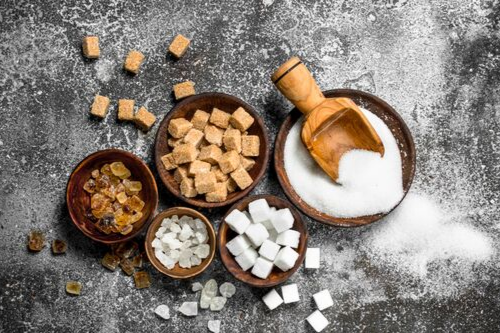Do you really know how much sugar you eat in a day?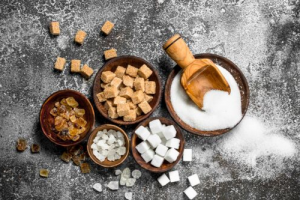
Unfortunately, most of us don’t. That’s because there is sugar added to almost EVERYTHING. The deli turkey that you have for breakfast, the ketchup on the fries you had for lunch, the yogurt you had for a snack, the bread in your sandwich.. Not to mention the sugar you add to your coffee, the candy and chocolate we snack on, or cocktails we enjoy on the weekends. And unfortunately, it’s a lot MORE sugar than we think it is.
Why is that a problem?
In the long term, sugar consumption is related to diseases such as cardiovascular disease, type 2 diabetes and cancer. According to the Harvard Health Blog, sugar has been linked to an increased risk of dying from heart disease and can contribute to high blood pressure as well as chronic inflammation in the body. According to the World Health Organization, the number of obese adults worldwide has doubled since 1980, part of which is due to increased sugar consumption.
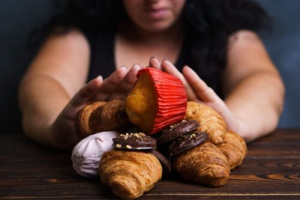 In the short term, you might want to reduce your sugar intake to avoid dental health issues, unstable energy levels, pre-diabetes, weight gain and insulin resistance. There is nothing wrong with enjoying an ice cream or a piece of cake every once in a while… but even this can be a problem if we are already unconsciously consuming sugar in most of our meals.
In the short term, you might want to reduce your sugar intake to avoid dental health issues, unstable energy levels, pre-diabetes, weight gain and insulin resistance. There is nothing wrong with enjoying an ice cream or a piece of cake every once in a while… but even this can be a problem if we are already unconsciously consuming sugar in most of our meals.
Here’s the thing- the more sugar we eat, the more sugar we crave, and the less sensitive our taste buds are to the taste of it! If you add sugar in your coffee, eat a chocolate bar and drink a soda every day, you will be less sensitive to naturally sweet foods. Once you begin to cut out added sugars on a regular basis, you will start to taste how delicious an apple is, or how a carrot is actually pretty sweet!
So how can you reduce sugar in your day to day life? 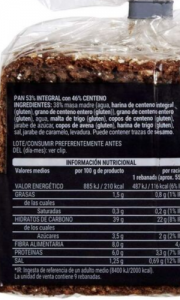
Read ingredient labels carefully! Sugar has a variety of different names: sugar, high fructose corn syrup, cane sugar, malt syrup, fructose, agave nectar, molasses, date sugar, panela, raw sugar, sucanat, cane syrup, rice syrup, honey, maple syrup.. Etc. Many packaged sauces, breads, processed meats and jam/marmalades have added sugar in them, even the ‘natural’ ones! Yes, ‘natural’ sugars such as honey and agave count- they may be less processed options, but their effect on the body is still the same. Additionally, reducing consumption of processed and packaged foods can be an easy way to lower sugar intake, as whole foods don’t come with added sugars.
Choose naturally sugar free drinks. Water, sparkling water, coffee, tea… all options with NO sugar or sugar substitutes. The less sugar you DRINK, the more sensitive your taste buds will become, and the sweeter other foods will taste. My favorite addition to coffee? A shake of cinnamon and some oat milk (ingredients: oats and water). For sparkling water, try adding lemon and fresh ginger slices.
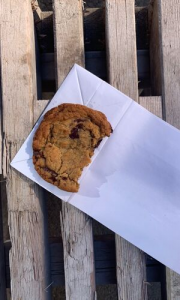
Change how you think of ‘dessert’. Dessert doesn’t need to be yogurt, cake or a couple of cookies. It also doesn’t have to be an everyday occurrence! Dessert can be a bowl of strawberries, an apple, a small handful of nuts or a cup of tea. Even dark chocolate can be a great choice, and as you start to reduce overall sugar intake, you’ll notice that super dark chocolate (80% + ) has a totally different taste to it.
Don’t be scared of (healthy) fats. I’m not recommending that you start drinking olive oil out of the bottle, but if you consistently restrict your dietary fat intake, adding in a little more healthy fats to your diet can be really helpful in reducing your sugar intake! Fat has a satiating effect, and something like a full fat yogurt can satisfy your taste buds much more than a nonfat one. Some good swaps to make: salmon instead of a white fish, chicken thighs instead of chicken breasts, whole eggs instead of just egg whites.
Remember, there is a big difference between enjoying a cookie or some ice cream every once in a while and consuming products with added sugar in them daily. As a nutrition coach, I understand the social component of food, and am not one to tell you to skip the birthday cake at your sister’s birthday, or to deny your grandmother’s cookies. However, it is important to be aware of the sugar we consume on purpose and the sugar that is ‘hidden’ or added to the products we consume on a regular basis.

